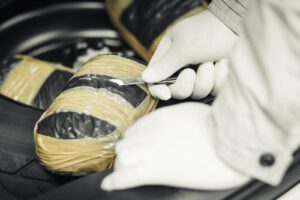 The New Jersey Supreme Court continued in relevant part: In Accutane, the Court observed that Frye is “unsatisfactorily constricting” as a way to assess the reliability of “novel or emerging fields of science.” 234 N.J. at 380. Daubert likewise described Frye’s approach as “rigid,” “austere,” and “uncompromising.” 509 U.S. at 588-89, 596.
The New Jersey Supreme Court continued in relevant part: In Accutane, the Court observed that Frye is “unsatisfactorily constricting” as a way to assess the reliability of “novel or emerging fields of science.” 234 N.J. at 380. Daubert likewise described Frye’s approach as “rigid,” “austere,” and “uncompromising.” 509 U.S. at 588-89, 596.
Frye also presents a difficult threshold question: identifying the relevant scientific community in which general acceptance must be measured. In some instances, scientific evidence may be studied by multiple scientific communities or none at all. Here, Judge Lisa observed that the relevant scientific communities — medicine and toxicology — were largely unfamiliar with the DRE protocol. And those most familiar with the protocol — traffic safety engineers, law enforcement professionals, and DRE coordinators and officers — were not scientists. Judge Lisa therefore found that this case “is not a typical fit for the Frye paradigm.”
Frye’s reasoning has come under criticism as well. The decision offered no explanation or authority for requiring general acceptance. Plus, the Frye test has been superseded by the Federal Rules of Evidence and is “incompatible” with the “liberal thrust” of those rules. Daubert, 509 U.S. at 587-89. Significantly, the current text of N.J.R.E. 4 702 is identical to the language of Fed. R. Evid. 702 at the time of the Daubert decision. Further, scholars have observed that Frye has not led to uniformity or predictability in practice.
The Court concludes that Daubert’s focus on methodology and reasoning, currently applied in civil cases, is a superior approach to criminal cases as well. Under Daubert and Accutane, trial courts directly examine the reliability of expert evidence by considering all relevant factors, not just general acceptance. Focusing on testing, peer review, error rates, and other considerations better enables judges to assess the reliability of the theory or technique in question. Courts are also in a better position to examine novel and emerging areas of science. In addition, to the extent Frye and cases that follow it draw lines between scientific and technical or other specialized knowledge, Daubert eliminates that unworkable distinction. Adopting a Daubert-type standard for criminal cases is also consistent with the New Jersey Rules of Evidence. Like the federal rule, N.J.R.E. 702 does not require a finding of general acceptance before expert testimony can be admitted.
The fact that the alleged “science” underlying DRE evidence is unfamiliar to scientists shows that the “evidence” has always been skewed to help law enforcement obtain convictions. It has always been rooted in “junk science” created by law enforcement themselves.
